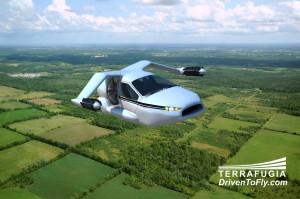Fifty years ago, humans believed that we would be colonizing the moon and potentially Mars, we would be flying hover crafts and teleportation would be a common method of traveling. In 2014, we haven’t accomplished any of those (yet), but humans are still optimistic that these are possibilities in the future.
A new survey of Americans conducted by the Pew Research Center in partnership with Smithsonian Magazine has found that there is a belief that we will live in a world comparable to Star Trek within the next century. However, there is still concern about how such technological innovations will affect society, such as privacy and surveillance.
 Before highlighting the results of the study, more than half (59 percent) of the survey participants confirmed they were optimistic about any technological changes that take place in the future, while close to one-third (30 percent) were pessimistic because they think it’ll make people’s lives worse.
Before highlighting the results of the study, more than half (59 percent) of the survey participants confirmed they were optimistic about any technological changes that take place in the future, while close to one-third (30 percent) were pessimistic because they think it’ll make people’s lives worse.
What does 2064 hold for the world? Well, flying cars and trucks, wearable technology to describe a person’s environment and drones in personal and commercial use – two concepts that are starting to transpire right now. Other findings:
- 19 percent said humans will be able to control the weather
- One-third projected humans will be colonizing space
- 39 percent think scientists will have the ability to teleport objects
- Half stated computers will have the same power as humans
- 81 percent believed patients who need an organ transplant will get lab-grown one
When asked what one invention they would personally own, most couldn’t provide an answer. For those that did, though, the most common response was related to travel, such as flying cars and bikes, spacecraft, jetpacks, teleportation devices and hoverboards. Nine percent wanted to travel back in time, nine percent yearned for health-related developments and four percent desired a robot servant.
“As new inventions come into widespread use, they change the ways that people can interact, and cause us to reassess the norms of our behavior,” said Aaron Smith, a Pew senior researcher, in an interview with NBC News (via CNBC). “That process can sometimes be painful.”
Despite innovations, many were cautious about some of the novelties. For instance, nearly two-thirds (63 percent) said it would be a bad idea for individuals and companies to use drones in U.S. airspace, a service that is being developed by the likes of Amazon and Google.
Moreover, more than half (53 percent) said life would be worse if a majority of society began to wear implants and other technological gadgets that regularly show them information regarding their surroundings. Another two-thirds of respondents disapproved the concept of DNA designer babies or robotic caregivers.
“Even though people are optimistic about how this will all work out in the long term, there’s a lot of concern about social norms, such as surveillance and privacy,” added Smith.
The telephone survey was conducted with 1,000 adults between Feb. 13 and 18. It contains a margin of error of +/- 3.6 percentage points.



